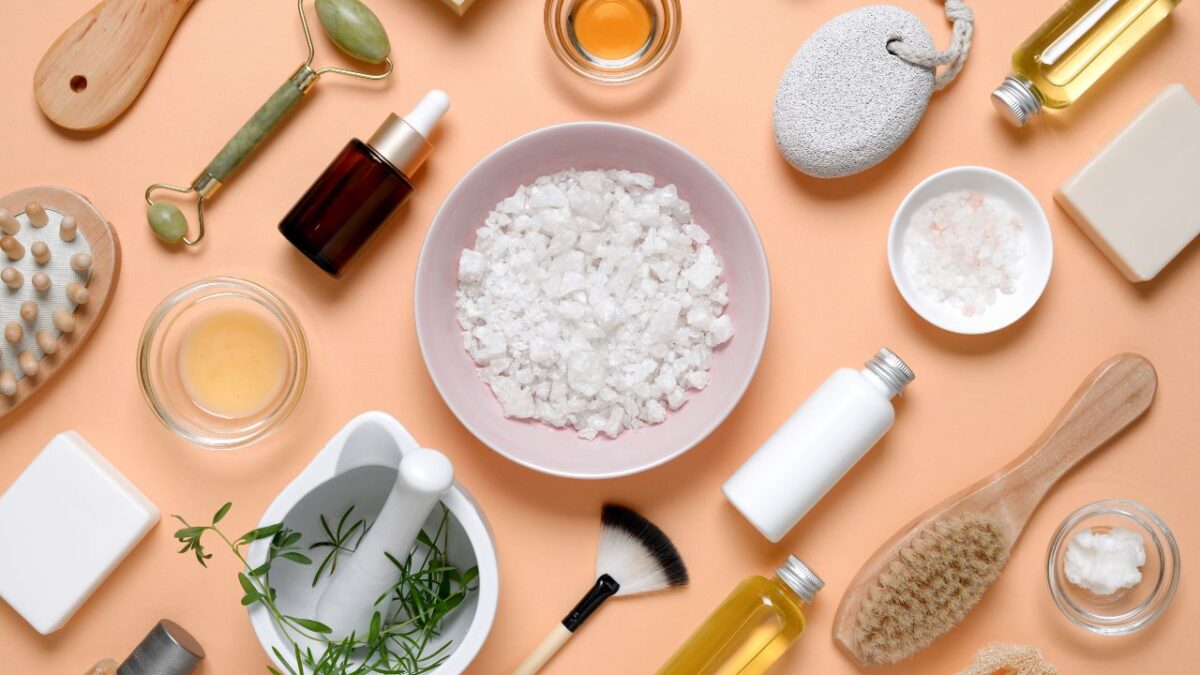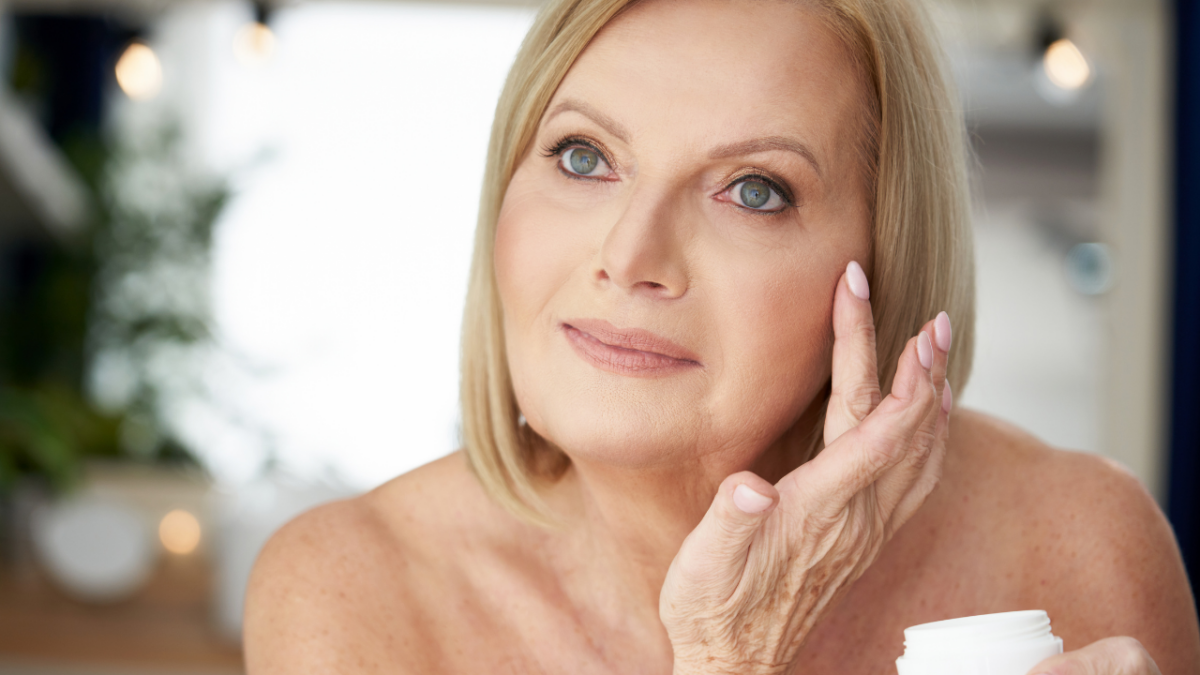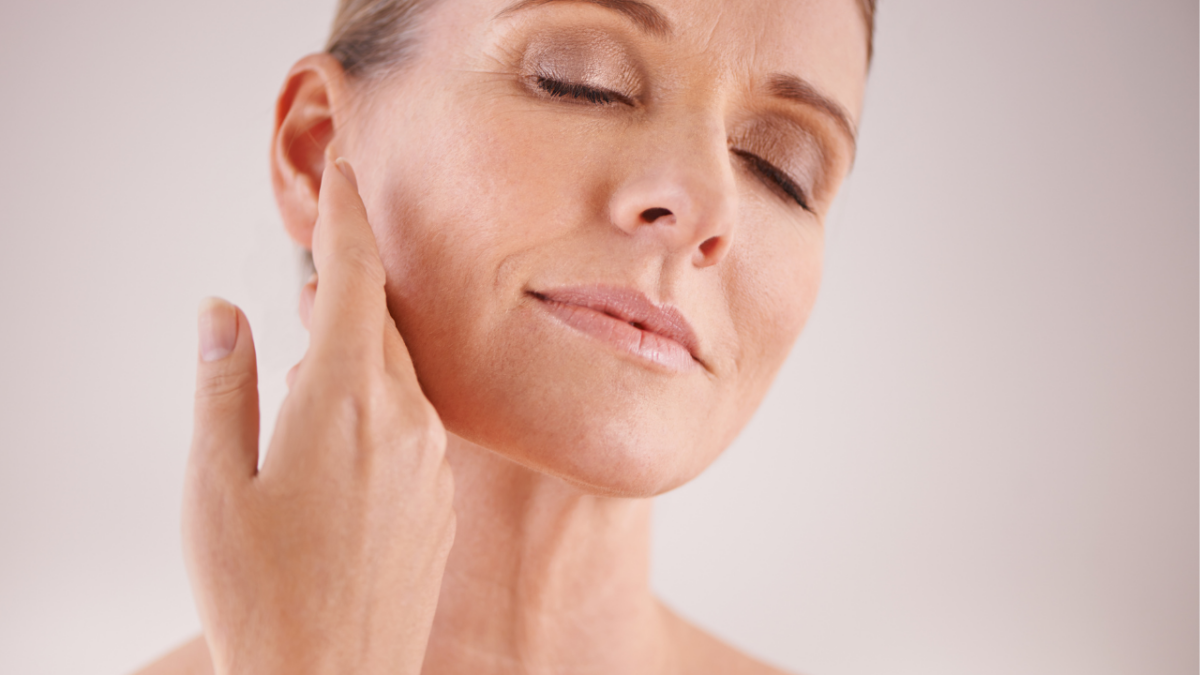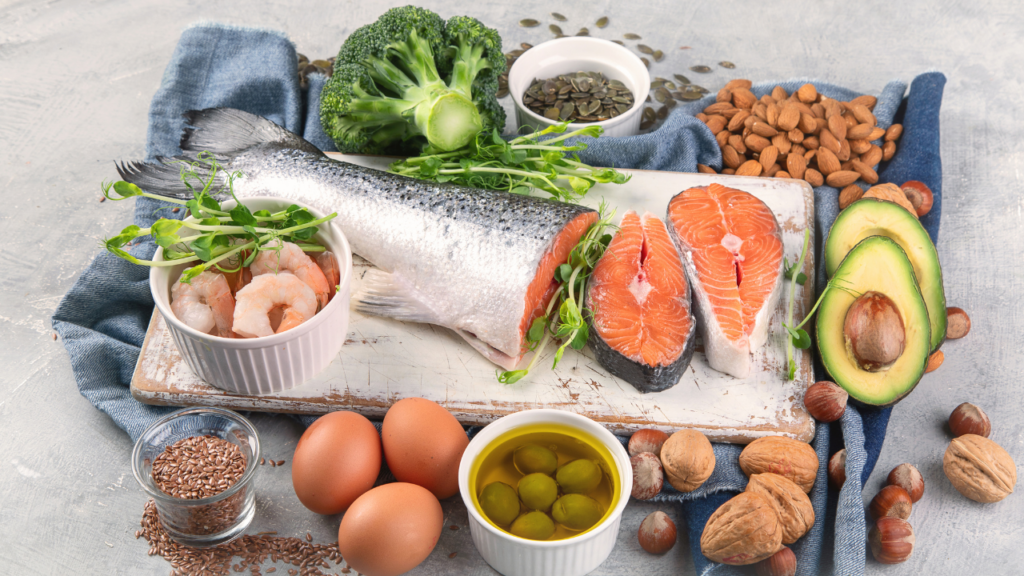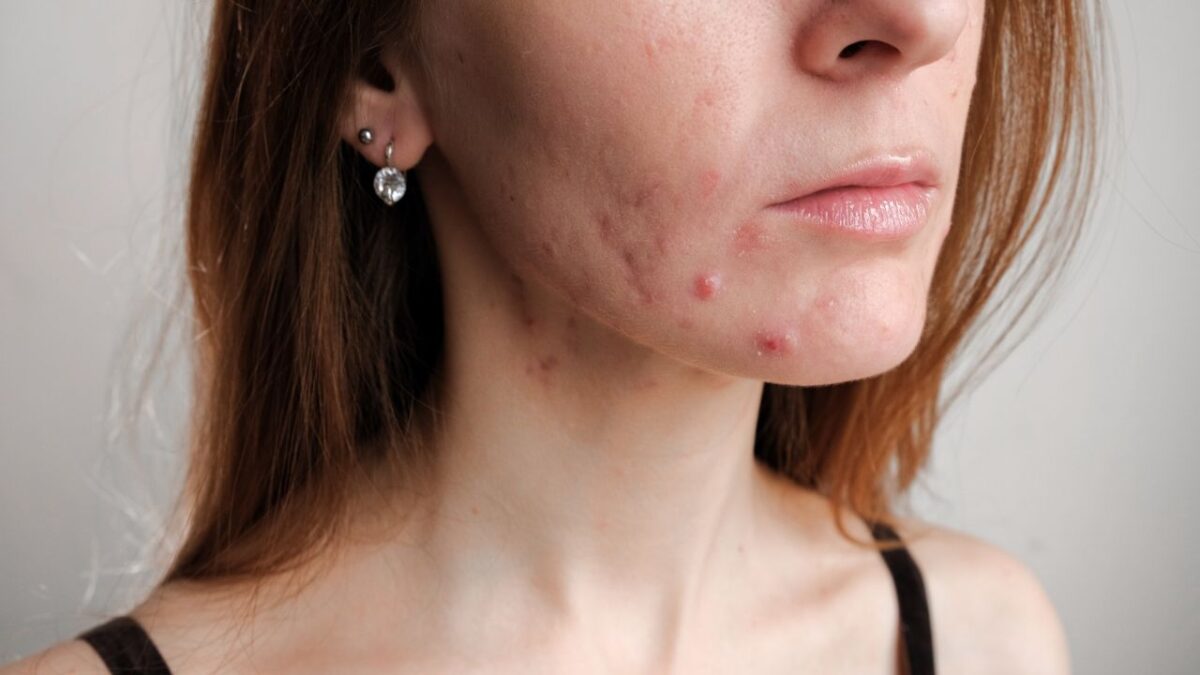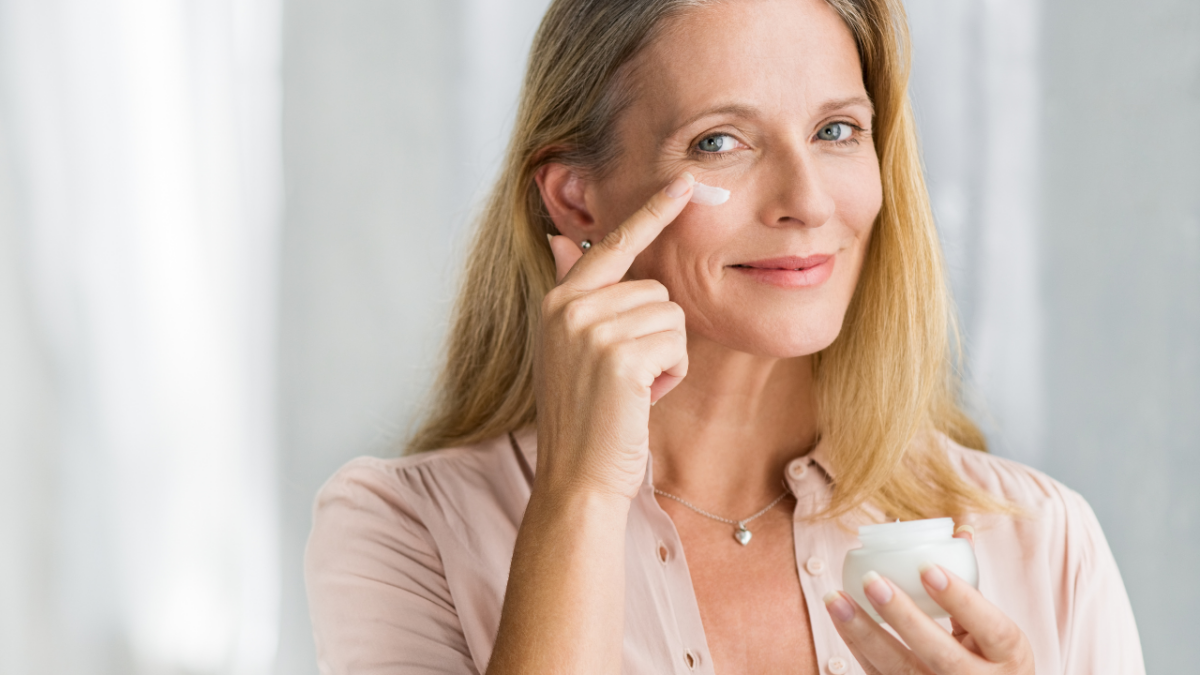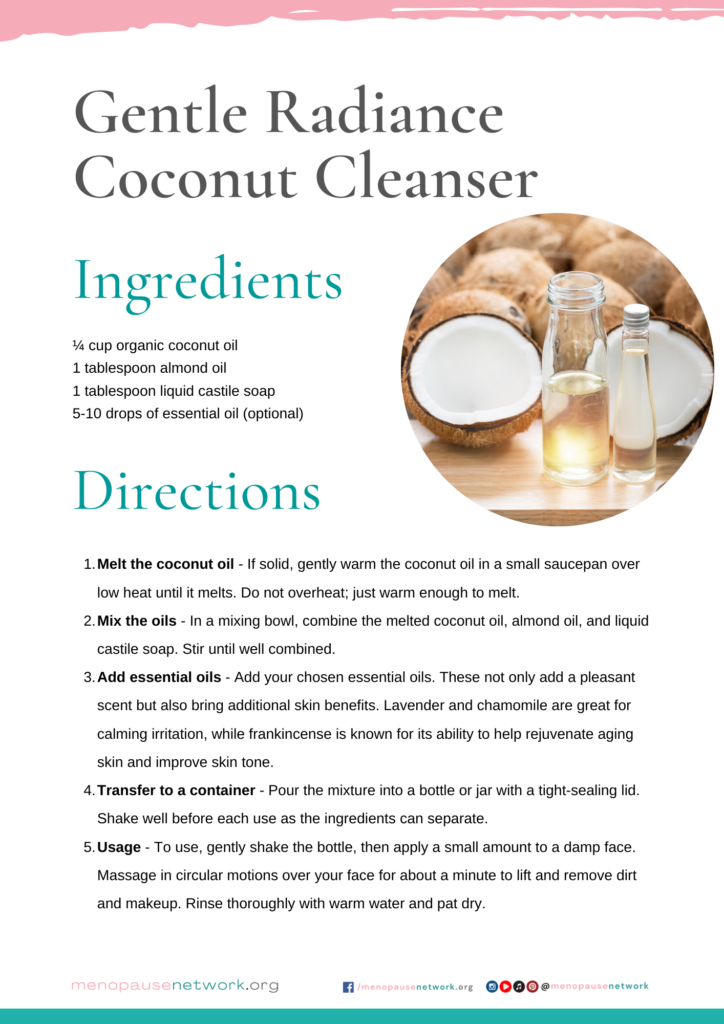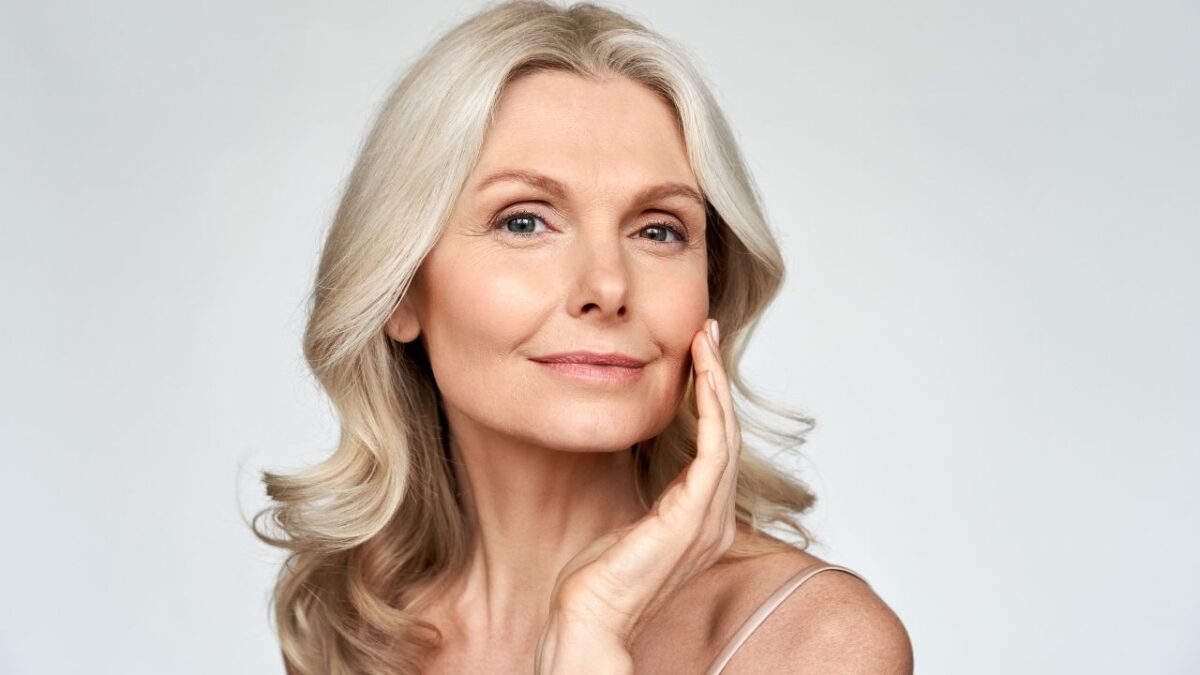Just when you thought acne was a thing of the past, it decides to make a comeback—right around the same time as hot flashes and mood swings. Yes, we’re talking about adult acne during menopause, an all-too-common skin woe that affects many women during this life stage.
Why Menopause Brings on Acne
Menopausal acne is the result of a complex interplay between hormonal changes, stress, and increased skin sensitivity. Understanding these triggers can help you take the right steps to manage your skin effectively during this transitional phase. By addressing each of these factors—balancing your hormones, managing stress, and choosing the right skincare products—you can better control breakouts and maintain healthier skin through menopause and beyond.
Hormonal Havoc
The most significant factor contributing to acne during menopause is the shift in hormone levels. As you approach menopause, your body produces less estrogen, the hormone that typically keeps your skin supple and balanced. With estrogen levels dropping, androgens like testosterone can become more dominant.
Androgens are known to stimulate the sebaceous glands in your skin, leading to increased sebum (oil) production. This excess oil can clog your pores, creating a perfect breeding ground for acne-causing bacteria. The result? More breakouts, often in areas like the jawline, chin, and neck—areas that are particularly responsive to hormonal changes.
These hormonal fluctuations don’t just cause breakouts; they can also make existing acne more stubborn and difficult to treat. The lower estrogen levels during menopause also mean your skin’s natural healing process slows down, so those pesky pimples might linger longer than they did in your younger years.
Stress, Stress, Stress
Menopause is a life stage that can bring about a lot of stress, whether it’s due to physical symptoms like hot flashes and sleep disturbances or the emotional impact of this transition. Unfortunately, stress can also take a toll on your skin.
When you’re stressed, your body releases cortisol, a hormone often dubbed the “stress hormone.” High cortisol levels can trigger your sebaceous glands to produce more oil, similar to how androgens work. This increase in oil production can exacerbate acne, especially if your skin is already prone to breakouts.
Moreover, chronic stress can weaken your immune system, making your skin less capable of fighting off acne-causing bacteria. This can lead to more frequent and severe breakouts, creating a vicious cycle where the stress of dealing with acne leads to more stress, and consequently, more acne.
Product Sensitivity
As if the hormonal and stress-related triggers weren’t enough, menopause can also make your skin more sensitive. The decrease in estrogen affects your skin’s moisture barrier, making it more prone to dryness and irritation. This sensitivity can lead to reactions to skincare products that you’ve used for years without any issues.
During menopause, your skin may become more reactive to ingredients like fragrances, alcohol, or harsh exfoliants. These ingredients can strip your skin of its natural oils or cause irritation, leading to breakouts. Even products designed to combat acne, like those containing benzoyl peroxide or salicylic acid, can sometimes backfire, causing redness, peeling, or worsening of acne if your skin becomes too dry.
This newfound sensitivity means that your skincare routine may need a complete overhaul. Products that once kept your skin clear might now contribute to acne, making it essential to reassess and adjust your skincare regimen to better suit your changing skin.
Practical Tips to Combat Adult Acne During Menopause
Now that we know why adult acne happens during menopause, let’s talk solutions. Here’s how you can tackle those pesky pimples and keep your skin clear and radiant.
1. Gentle, Consistent Skincare Routine
Your skin is more delicate during menopause, so it’s crucial to be gentle. Opt for a mild, sulfate-free cleanser that won’t strip your skin of its natural oils. Look for products containing salicylic acid or benzoyl peroxide—both effective at unclogging pores and reducing inflammation. Remember to moisturize with a non-comedogenic product to keep your skin hydrated without adding extra oil.
2. Consider Retinoids
Retinoids are a dermatologist’s go-to for treating acne and reducing the signs of aging. These vitamin A derivatives help to speed up cell turnover, unclog pores, and reduce the appearance of wrinkles. However, they can be irritating, especially on mature skin, so start slowly—apply every other night and use a gentle moisturizer to combat dryness.
3. Manage Stress Levels
Easier said than done, right? But managing stress is crucial for keeping those breakouts at bay. Incorporate relaxation techniques into your daily routine, such as yoga, meditation, or even just a brisk walk. Make sure you’re getting enough sleep, as lack of rest can increase cortisol levels and worsen acne.
4. Watch Your Diet
What you eat can have a big impact on your skin. Dairy and high-glycemic foods (like sugary snacks and refined carbs) have been linked to acne. Try cutting back on these and instead, focus on a balanced diet rich in fruits, vegetables, lean proteins, and healthy fats. Omega-3 fatty acids, found in fish like salmon and walnuts, are known to reduce inflammation and may help with acne.
5. Hormonal Treatments
For some women, managing menopausal acne may require hormonal treatments. Birth control pills, which regulate hormone levels, can be effective. There’s also hormone replacement therapy (HRT), which balances estrogen levels and may reduce breakouts. However, both of these options come with potential risks, so it’s essential to discuss them with your healthcare provider.
6. Topical Antibiotics and Oral Medications
In cases of severe acne, a dermatologist might prescribe topical antibiotics to reduce bacteria and inflammation. Oral medications like spironolactone, which blocks androgens, can also be effective. Again, these treatments should be considered with a healthcare professional’s guidance.
When to Seek Professional Help
If your acne doesn’t respond to over-the-counter treatments, or if it’s affecting your confidence, it might be time to see a dermatologist. They can prescribe stronger treatments and offer professional advice tailored to your skin’s needs.
The Silver Lining
While menopausal acne is frustrating, it’s not something you have to suffer through in silence. With the right skincare routine, lifestyle adjustments, and possibly medical treatment, you can manage breakouts and enjoy healthy, glowing skin even during this transitional phase of life. So, if you’re battling adult acne during menopause, don’t lose hope—clearer skin is within reach.

